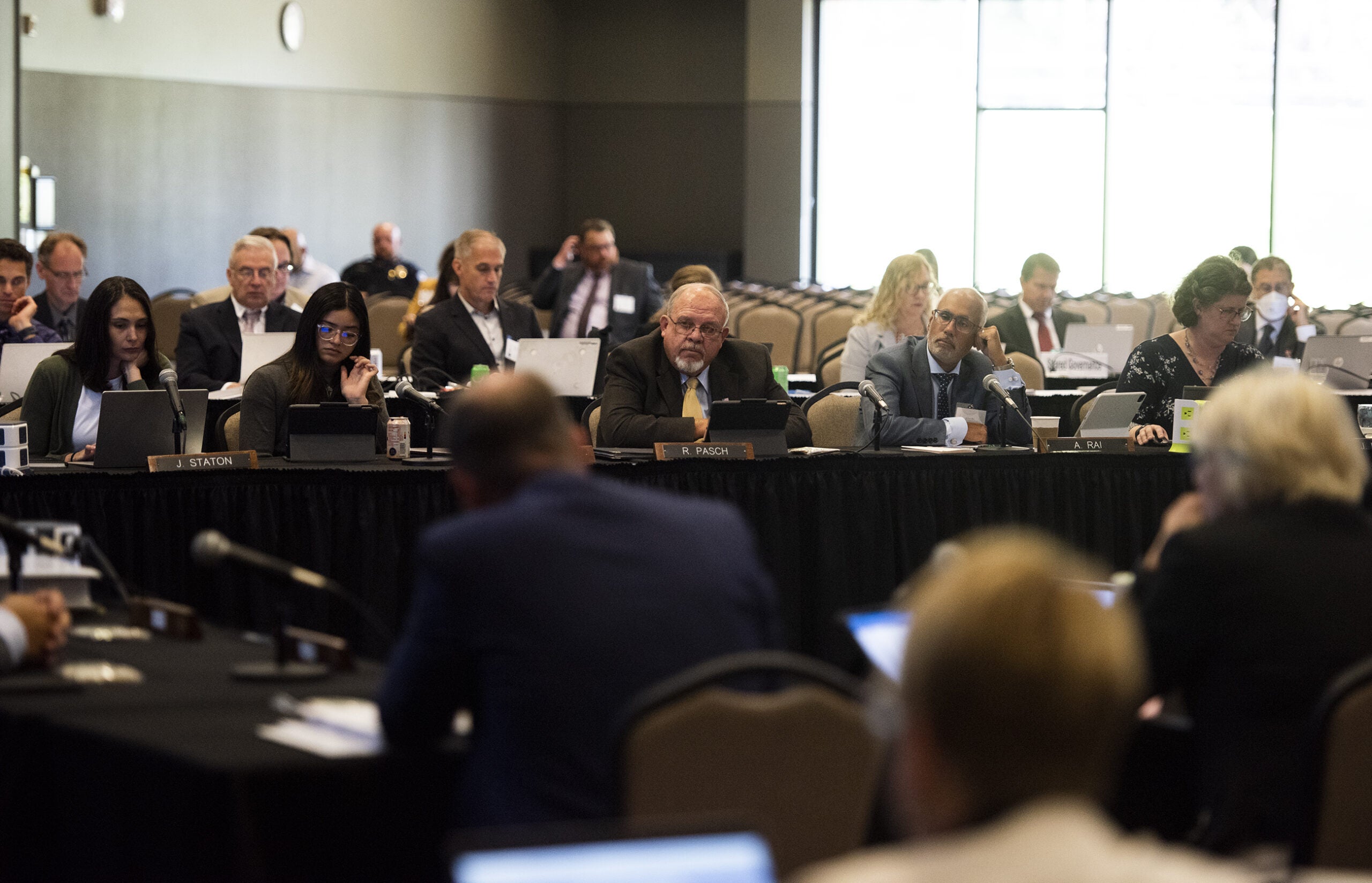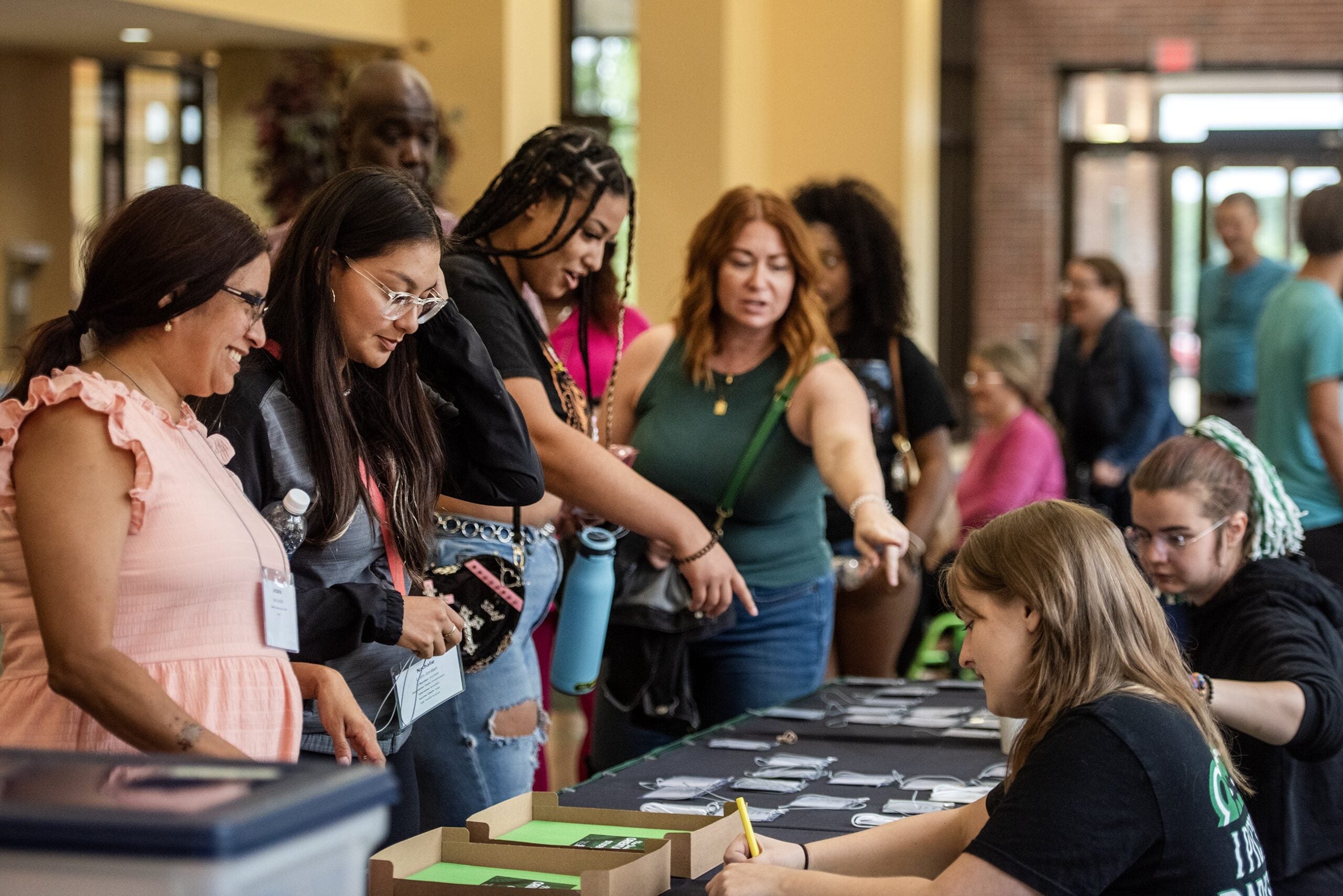An interactive mapping program designed to help preserve and share your life history is being developed at UW-Madison. We talk to the LifeMapping founder for the details. We also hear from one lawyer and advocate for parents with disabilities who may face many legal barriers when trying to raise their children. We also discuss the results of the special election in Wisconsin’s 10th Senate district.
Featured in this Show
-
What The Schachtner Victory Could Mean For The Political Landscape
Democrat Patty Schachtner will be the next state Senator from Wisconsin’s 10th district. Schachtner’s victory has the two major political parties wondering if the win is indicative of a shakeup coming to the American political landscape. The district has been solidly Republican for years and easily went to now-President Donald Trump during the 2016 election. We speak with Paul Nolette of Marquette University about what this latest Democratic win could mean for the GOP and politics heading into the midterm.
-
Maps Become Storytelling Tools With Launch of New Website
Dean Olsen’s life hasn’t followed a straight line. Instead, it’s been fraught with hardship and speckled with new beginnings.
Its twists and turns involve losing jobs, struggling with alcoholism and finally, coming back to Wisconsin to start over.
Inspiration struck Olsen while he was working as a caretaker for a man with Alzheimer’s — one of the only jobs he says he could land after coming back to the Badger State while battling the alcohol addiction that forced him into rehab and out of a successful marketing career in both New York City and London. He found that showing the man a map of his college town brought back a flood of memories.
“He began sharing stories that he probably hadn’t thought of in years,” Olsen said. “It was really cool, because it was hard for him to remember where he even was.”

Image courtesy of LifeMapping.co.A beta version of Olsen’s website lifemapping.co launched this week, and it helps users create an interactive map of their own life. It starts with questions about where the user has lived and worked, and moves on to more introspective questions to spur mapmakers to tell their stories.
The finished product is a sharable, interactive map with photographs and stories about the user’s life at each stop. Olsen compares it to Facebook but “for the important stories and the important people.”
Olsen graduated from the University of Wisconsin-Madison with a bachelor’s degree in geography in 1982. Three years ago, he completed UW-Madison’s graduate certificate in geographic information system. During that time, UW-Madison faculty and staff helped him move forward with LifeMapping.
“LifeMapping is about stories, and about the importance of stories,” Olsen said. “We have … peer-reviewed research that says stories and story sharing makes for stronger families, more resilient children, elders who are less depressed and spend less time in the hospital. It’s just really all a positive thing.”
Olsen’s project is part of the UW-Madison Discovery to Product program, which aims to turn ideas and research on campus into marketable products. According to the LifeMapping website, they expect to spin off as a private, for-profit company “in the near future.”
Olsen said as important as the tool is for introspection, the fact that it’s sharable is perhaps even more significant. Sharing life stories can help younger generations better relate to their parents and grandparents, and realize they have someone to turn to when “things maybe aren’t so hot for them,” Olsen said.
Knowing the facts of a loved one’s life — the city where they grew up, where they graduated college — isn’t as important as hearing their memories, Olsen said. LifeMapping aims to take raw data and turn it into something more valuable.
“It can turn the facts you have into stories,” Olsen said. “And folks respond to stories, they don’t respond to the facts nearly as much.”
Olsen’s been thrilled at the positive reactions to his project so far, and said it has struck a chord with the people who have tried it. But the person who’s gained the most from the project might just be Olsen himself.
Olsen said the project has given him a focus, a goal and a reason to stay sober.
“I think that this sharing of stories, and hearing other folks’ stories, saved my life,” Olsen said. “It made me see that I could be the hero of my own life.”
-
Maps As Storytelling
A new startup project out of the University of Wisconsin-Madison’s Discovery to Product program sees maps as storytelling. We speak with LifeMapping founder and UW-Madison grad Dean Olsen about how the twists and turns in his own life inspired him to create the software.
-
Parents With Disabilities Face Obstacles To Keep Their Children
Parents with disabilities, including but not limited to psychiatric, intellectual and physical, make up 6% of US parents, according to 2012 data. They are also more commonly involved in the child welfare system compared to non-disabled parents, and once involved in the child welfare system, more likely to have their parental rights terminated. We take a closer look at the issue with our guest, an attorney, writer, and scholar of disability law and policy.
Episode Credits
- Rob Ferrett Host
- J. Carlisle Larsen Producer
- Gretchen Brown Producer
- Natalie Guyette Producer
- Paul Nolette Guest
- Dean Olsen Guest
- Robyn Powell Guest
Wisconsin Public Radio, © Copyright 2025, Board of Regents of the University of Wisconsin System and Wisconsin Educational Communications Board.

